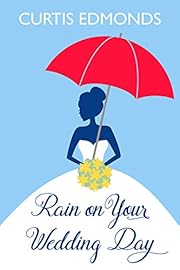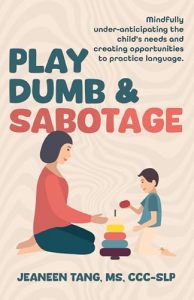There’s a great line in Tom Wolfe’s classic The Right Stuff, about the early days of the space program, where he talks about how test pilots who would fly high-performance jet aircraft on the heels of a mortal hangover. Wolfe quotes them as saying, “I don’t advise it, you understand, but it can be done.”
I wasn’t mortally hung over when I wrote Rain on Your Wedding Day, but I was mortally exhausted. I have twin girls who were two years old when the book was written. My wife and I both work full-time and have long commutes, and then when you add to that the pressures of taking care of small children, it depletes your physical and mental energy. I had the time to write the book in the hour or so between the time when the children finally got to sleep and the time I went to sleep, but I didn’t really have the ability to write the book the way that I wanted to?the way that the story deserved to be written.
What I did was to split up the disparate mental activities that go into writing. As I write this piece, for example, I am doing three separate things at once. I am composing the text in my head, tapping it out on my keyboard, and reading what I’ve typed to check for errors. You can do all three things in your head at the same time without even thinking about it too much.
Unfortunately, I couldn’t write Rain on Your Wedding Day that way. I only had two large swaths of free time available to write. During my morning commute, I had the alertness to write, but not the ability to type what I had written. During the evening, I had access to the computer to type, but I didn’t have the mental energy needed to compose. So I split up the tasks. I did most of my composing?the mental work needed to put the plot together and set up scenes and write dialogue?in the car on the way to work. Then, when I had time to sit down in front of the keyboard, I worked on typing the words I had imagined earlier in the day. Once I had the words in an electronic format, I then went back and edited them, and then worked on rewriting. I also logged my word count every day on a spreadsheet to help keep me motivated and focused.
This is not the usual way that you write a novel, and I don’t pretend that it’s the best way. But it worked for me, and I was able to get my novel completed and edited and ready for publication that way. I don’t advise it, you understand, but it can be done. (If, as Tom Wolfe would say, you have the right stuff.)
About Curtis Edmonds
Curtis Edmonds is the author of Rain on Your Wedding Day. His short fiction and book reviews are collected at his website, http://www.curtisedmonds.com.
Follow Curtis Edmonds:
BookSliced!
Twitter
Facebook
Website










